FAMILY OWNED AND OPERATED・PROUDLY SERVING OHIO & FLORIDA SINCE 2002
What Safety Requirements Does A Roofing Job Require?
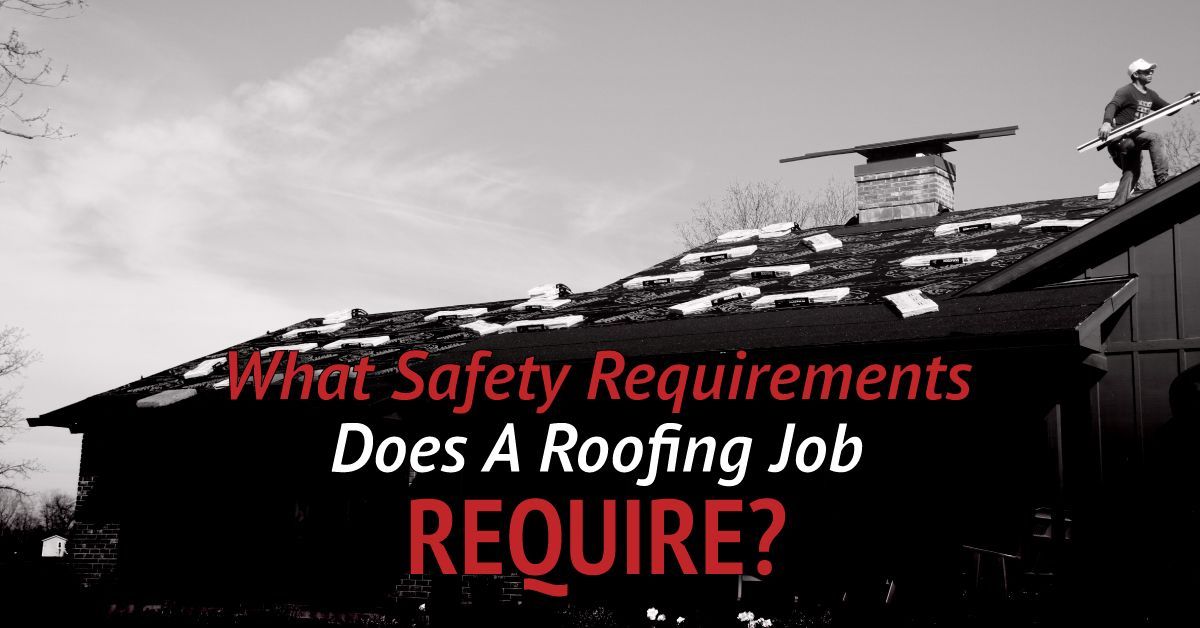
How dangerous is roofing? For 2019, the latest available year with data, the Bureau of Labor Statistics (BLS) reports roofers suffered the second-highest number of fatalities from slips, trips, and falls (only behind construction workers). How does Allstate Exteriors & Restoration Services protect its workers?
Stay Off!
Before plunging — er, uh, going — further into the safety requirements we use, please take to heart this urgent reminder:
- Stay Off Your Home’s Roof!
Residential roofs classify as “steep-slope roofing,” which means they have a pitch or angle that is much greater than commercial roofs with their low-slope angles. Steep-slope roofing is inherently dangerous. The human foot and ankle are not designed to navigate the steep terrain of a residential roof, so, please, stay off your roof!
Strap On!
If humans are not really equipped to walk around on residential roofs, how do roofing installers do it? They use tools and gear, lots of protective gear:
- Fall arrest gear
- Heavy work boots
- Personal protective equipment (PPE)
Fall arrest gear is strapped on as if the roofer were preparing to skydive. A clip harnesses the roofer to ropes anchored to some sturdy object, like your home’s chimney or your roof peak. If the roofer stumbles or slips, the fall arrest gear will bring him (or her!) to a lurching stop before an unfortunate tumble over the roof eaves.
Out Loud
In addition to safety equipment required for every roofer on every job, other safety protocols are also in place. They are expected to talk to each other, check on each other, and ensure one another’s safety. Platform hoists are often used to send materials up a ladder-like device to the roof. Verbal signals let roofers know where the loads are and when things are going up or down. Roofers work together, supplying the worker laying down shingles, and acting as extra eyes near roof edges.
A roof during installation is a busy but organized place, with every worker aware of one another, where the danger spots are, and how materials are moving on site. Safety is always the most critical part of any roofing job. Allstate Exteriors & Restoration Services LLC is your trusted, local source for roofing, siding, and gutter projects. Please contact us today to learn more about how we work. Whether for a roof emergency or a routine roof replacement, we know safety is required for all aspects of the job.
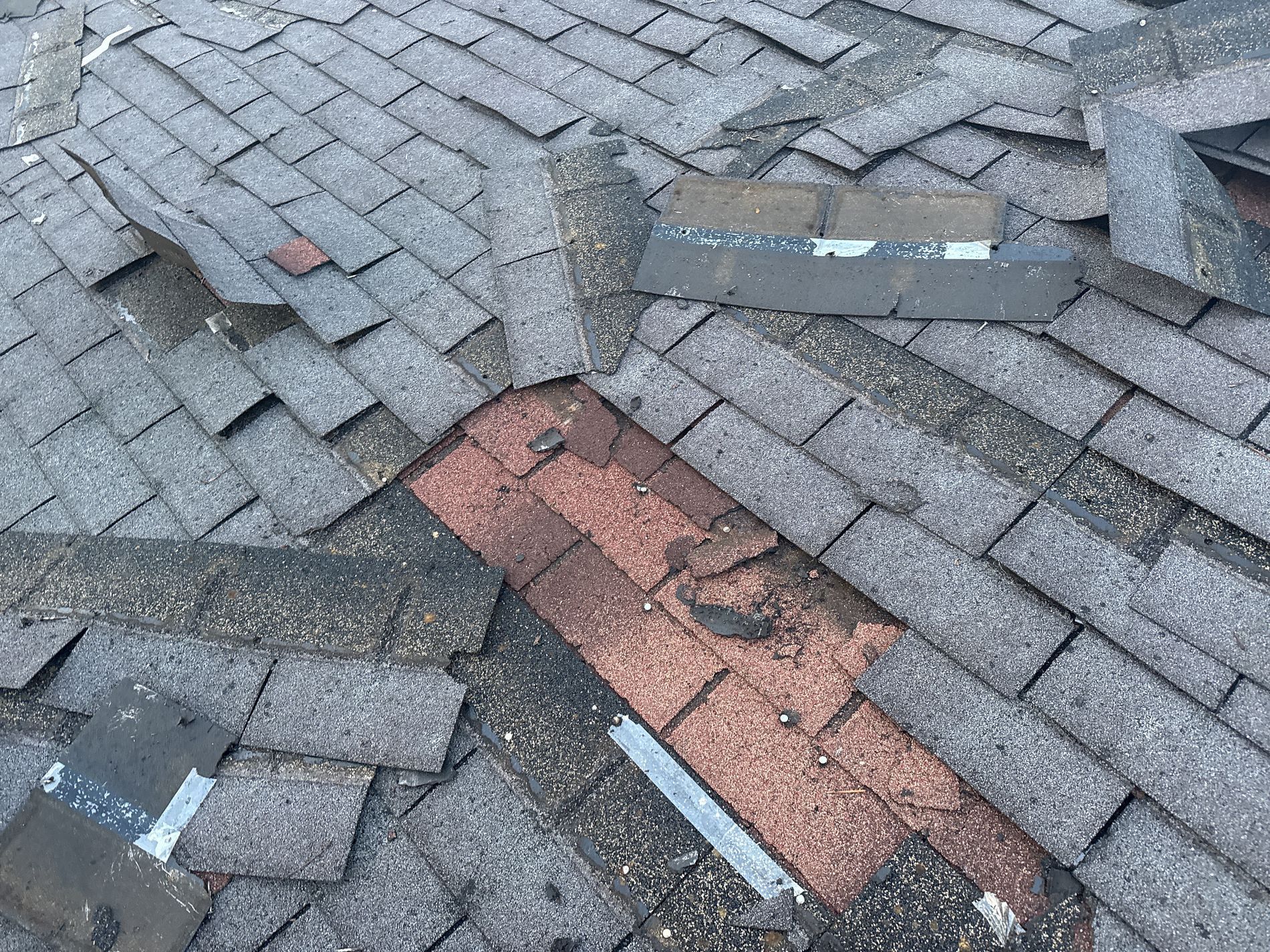
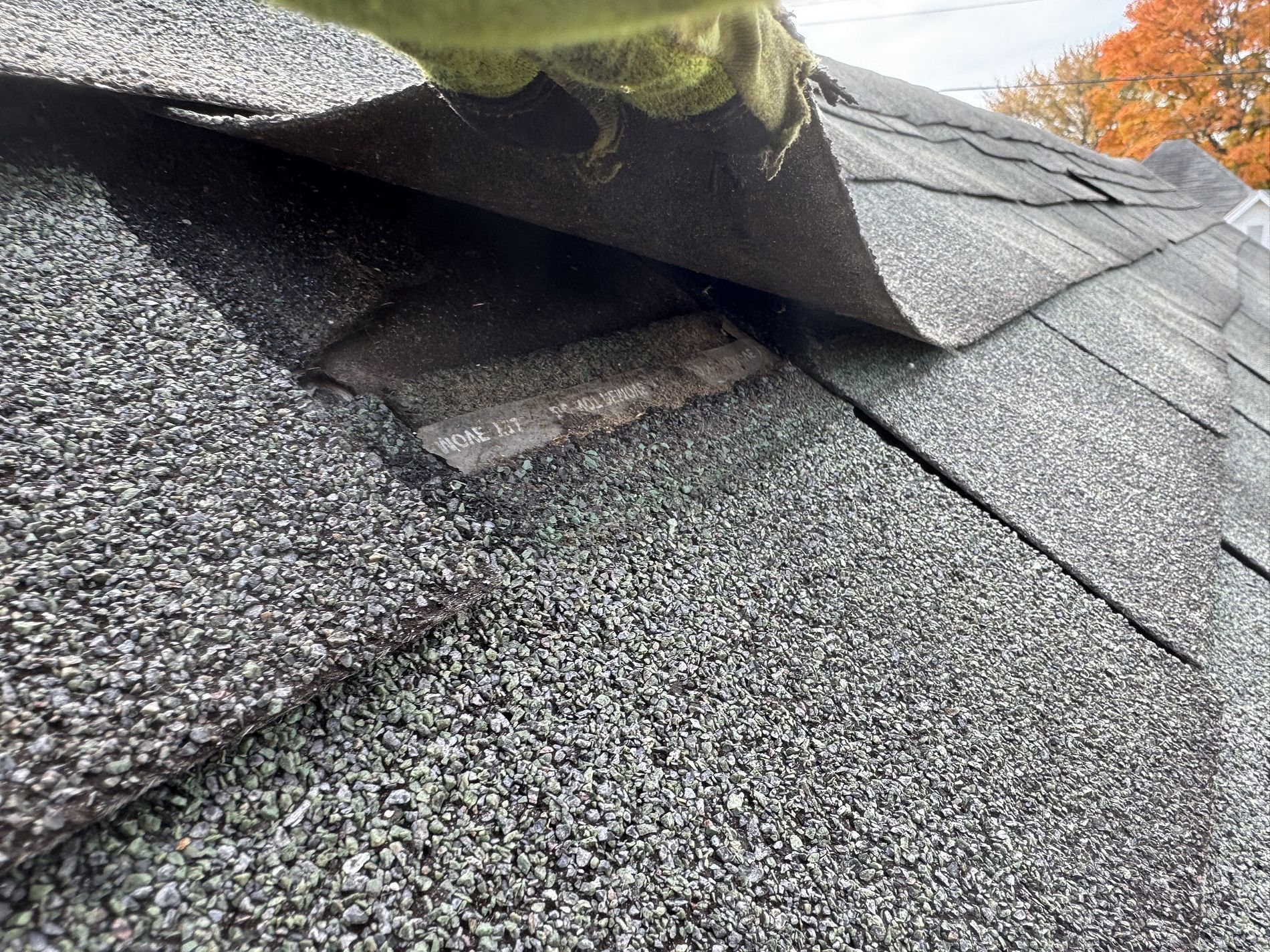
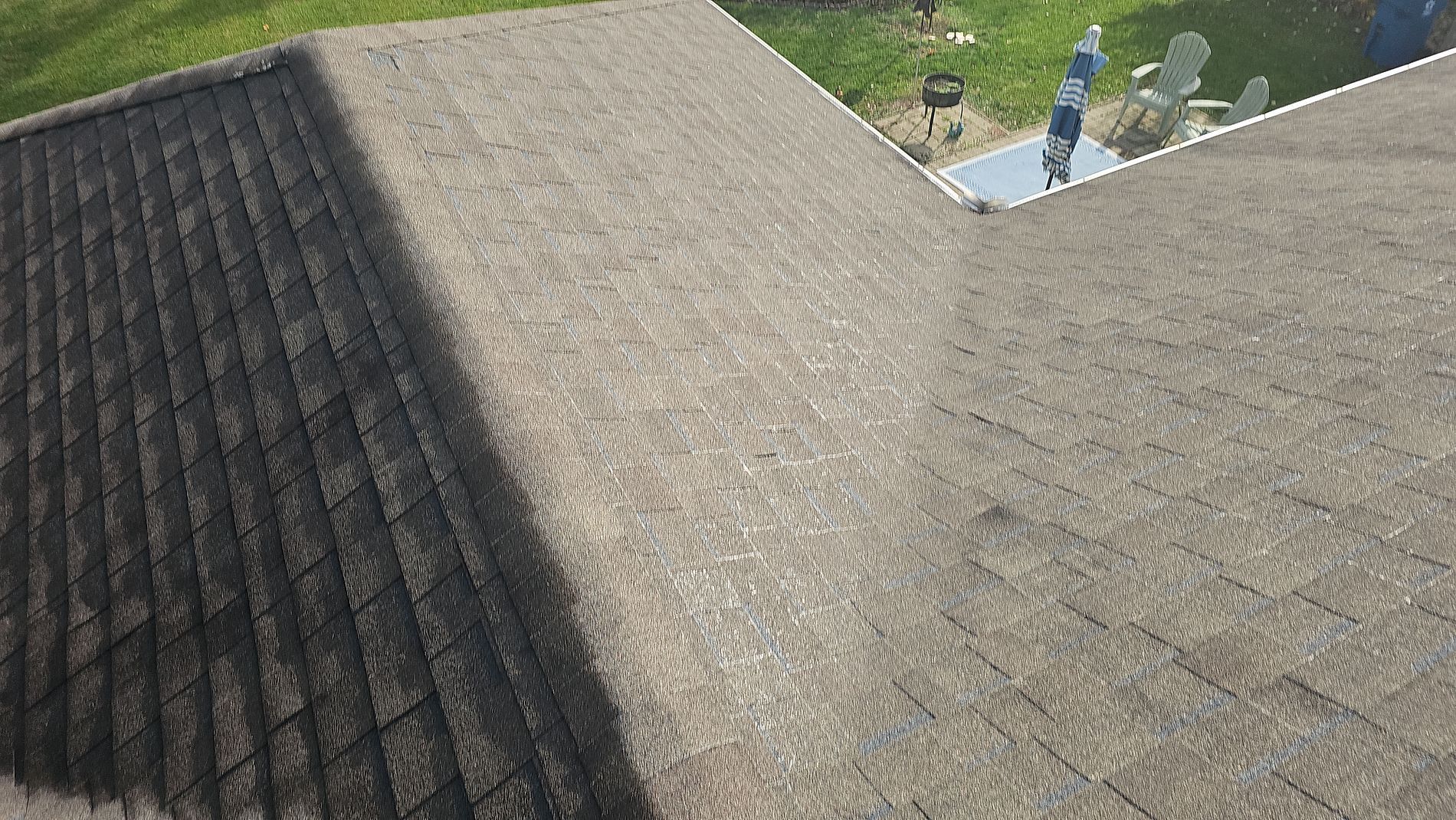
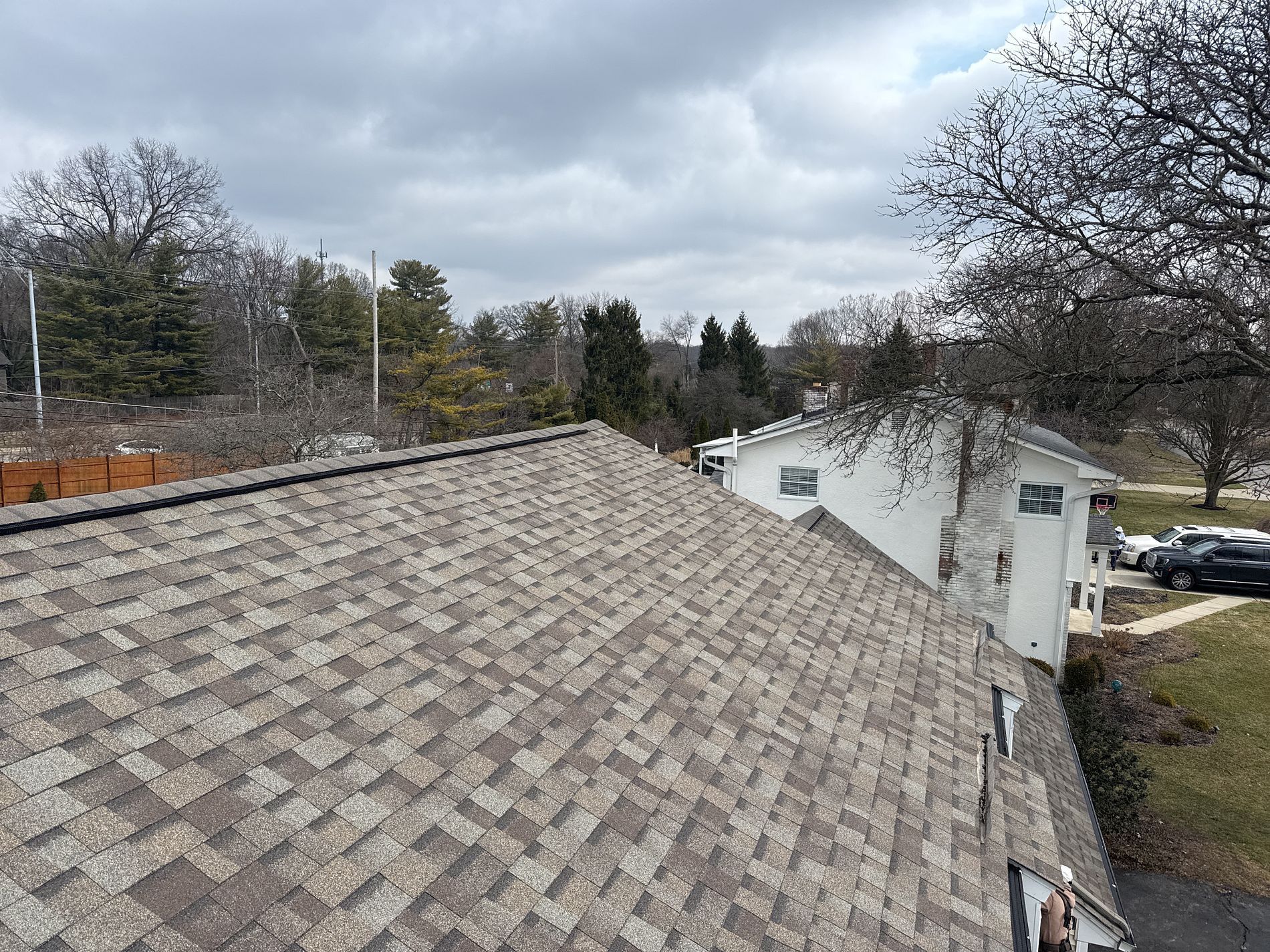
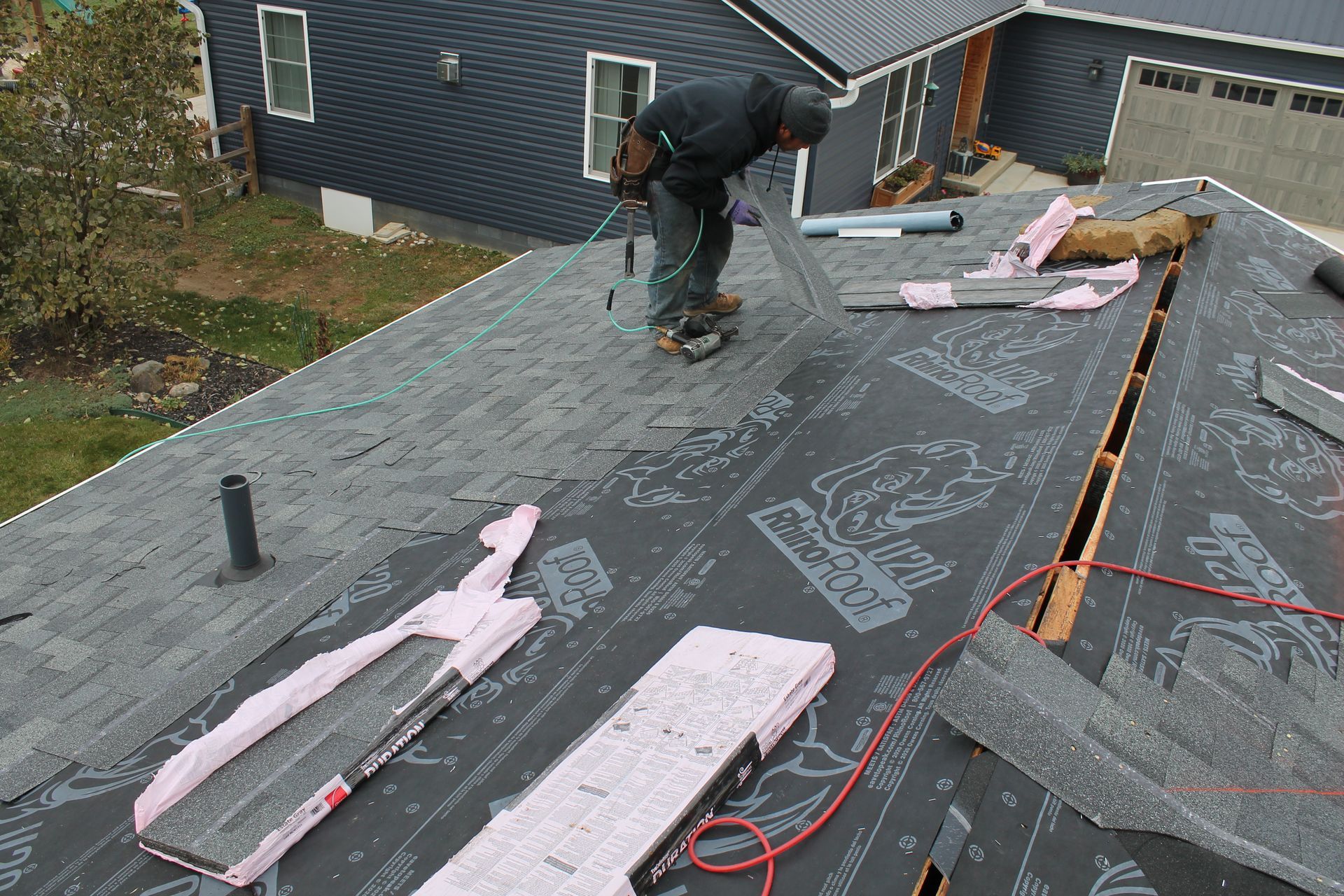
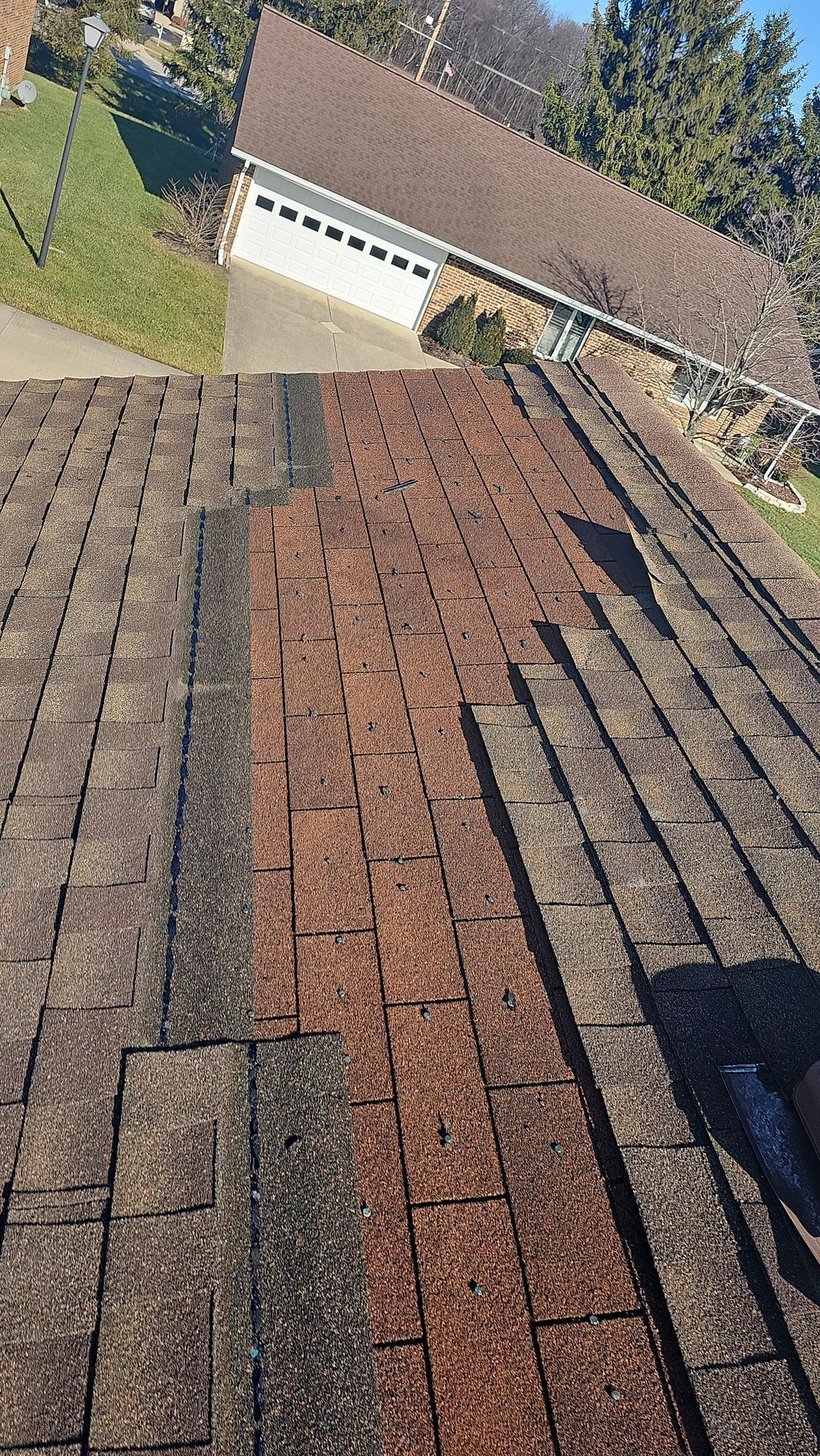

Joe M.
Founder

Lynna M.
Management

Macey M.
Director of Marketing

Cooper M.
Account Manager

Alicia
Inside Account Manager

Allison
Account Coordinator

Amanda
Manager of Accounting

Anne
Account Manager

Brandon V.
Account Manager

Brandon
Account Manager

Brittany
Project Manager

Brianna
Account Coordinator

Brooke
Project Manager

Cayden
Account Manager

Celina
Accounting

Chris
Manager

Cody
Account Manager

Daniel
Account Manager

Danny
Project Manager

Deb
Accounting

Deb
Permitting Specialist

Dillon
Production Project Manager

Eric W.
Account Coordinator

Evan
Production

Glenn
Account Manager

Jack
Inside Account Manager

Jake
Accounting

Jeremy
Management

Jessica
Human Resources

Jessica
Inside Account Manager

Jon
Account Manager

John
Management

John G.
Account Manager

Josh
Inspector

Kyle L.
Account Manager

Kyle R.
Management

Lucas W.
Production

Mack
Account Manager

Matt
Senior Project Manager

Michelle
Customer Service Manager

Moses
Production Project Manager

Paul
Account Manager

Ronnie
Account Manager

Ryan R.
Management

Teresa
Account Coordinator

Tessa
Marketing Assistant

Violet
General Manager - Palm Bay

William
Operations

Remembering Tony

For more than 22 years, Allstate Exteriors has been one of the most trusted names in roofing, siding, gutters and all other exterior work in Ohio and Florida.
Allstate Exteriors & Restoration
Allstate Exteriors & Restoration
Orlando Office
1210 Tropic Park Dr
Sanford, FL 32773
689-205-9678
Zanesville Office
(Visit by appointment only)
1277 Maple Avenue
Zanesville, OH 43701
